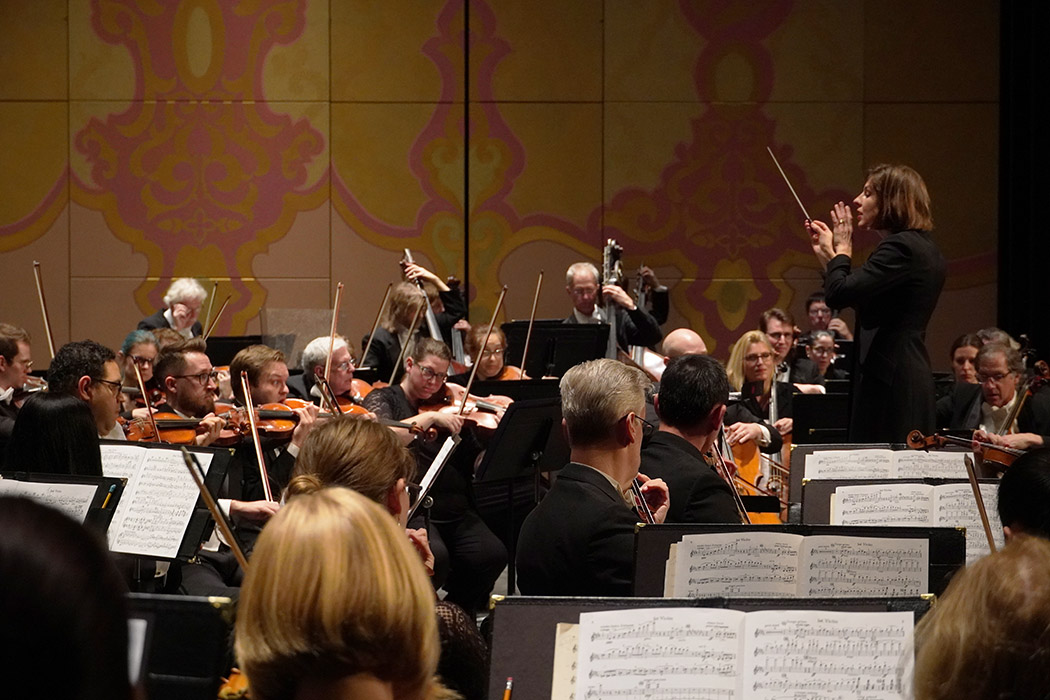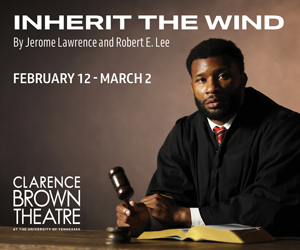January was a guest conductor month for the Knoxville Symphony Orchestra’s Masterworks concerts this past weekend with the orchestra entrusting the baton to Lidiya Yankovskaya for the occasion. Ms. Yankovskaya has been Music Director of the Chicago Opera Theatre since 2017, a categorical hint at what the Knoxville audience might have expected from her and the orchestra. Self-describing as a “fiercely committed advocate for Slavic masterpieces, operatic rarities, and contemporary works on the leading edge of classical music,” Yankovskaya was probably an obvious choice for this program. Add into the equation a guest soloist in the form of young cellist Oliver Herbert performing Antonin Dvořák’s Cello Concerto in B minor and the evening took on an air of anticipation. Countering the Dvořák, the evening had a side trip to Detroit with Missy Mazzoli’s 2013 work, River Rouge Transfiguration, but finally concluded with Richard Strauss’ opulent, but anachronistic Suite from Der Rosenkavalier. All in all, the anticipation was rewarded with some beautiful ensemble playing from the orchestra under the careful precision of Yankovskaya and a soulful and poignant interpretation from Herbert.
One issue always confronting guest conductors and soloists in the Tennessee Theatre is adapting to the hall’s remarkable acoustics and deliciously warm resonance with the orchestra shell in place—acoustics that, admittedly, can lead one to misjudge balance between orchestra and a solo instrument. Herbert and Yankovskaya clearly recognized this fact and responded with adjustments, allowing the voice of Herbert’s cello—certainly a gorgeous voice—to reach out above the orchestra.

Herbert impressed both technically and dramatically, excelling in the moments of Slavic lyricism as well as in the intimate Adagio with its gentleness and suggestions of a yearning for home. Dvořák’s finale movement, especially the Coda that was reworked by the composer following the death of his sister-in-law, tugged at the heart strings with nostalgia and wistfulness—a mood that evolves into the sweeping bold conclusion.
Yankovskaya opened the second half of the concert, delivering Missy Mazzoli’s River Rouge Transfiguration, a 2013 work commissioned and premiered by the Detroit Symphony under Leonard Slatkin, with bold brushstrokes of sound, addictive textures, and careful attention to balance. The work was a feast for the KSO percussionists, a work both of clanging industry and modern romance, that is driven by effects from bells, vibraphone, drums, piano, and harp, layered with strings, woodwinds, and brass.
After the fascinating ten minute Mazzoli work, Yankovskaya concluded the evening with Richard Strauss’ Suite from his 1911 Der Rosenkavalier. Although there were earlier concoctions, program notes tell us that the suite performed here by the KSO dates from 1944 and is probably the work of Artur Rodziński with approval from the composer.
This performance of the Suite was a showcase of ensemble playing by the orchestra, but also featured some notable and impressive solo turns. The KSO horn section, led by Principal Horn Jeffery Whaley, was busy all evening—from Whaley’s gorgeous solo moment in the Dvořák, to the “whooping” horns in this Suite. Busy, too, was the oboe of Principal Claire Chenette, which adds a romantic narrative to the suggestion of the characters’ love scene. Concertmaster William Shaub had some luscious solo moments of violin romance. And, of course, the Suite ends ebulliently, joyfully, and boisterously, mirroring the opera’s comic ending.
• • • • • •
The KSO’s January continues this week on Wednesday and Thursday (January 25 & 26) with the Concertmaster Series, “William Shaub and Friends,” at the Knoxville Museum of Art. The featured work will be Johannes Brahms’ Horn Trio with Jeffery Whaley, horn; Kevin Class, piano; and William Shaub, violin.
Closing out the month is the Chamber Classics Series on Sunday, January 29, at the Bijou Theatre. Aram Demirjian will conduct the afternoon concert that includes Ethel Smyth’s Suite For Strings, Jeff Midkiff’s Mandolin Quintet No. 2, and more Dvořák, his Serenade For Strings.
• • • • • •







